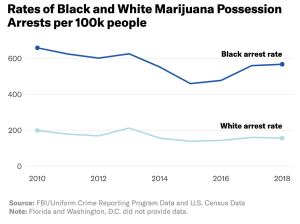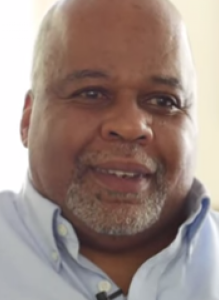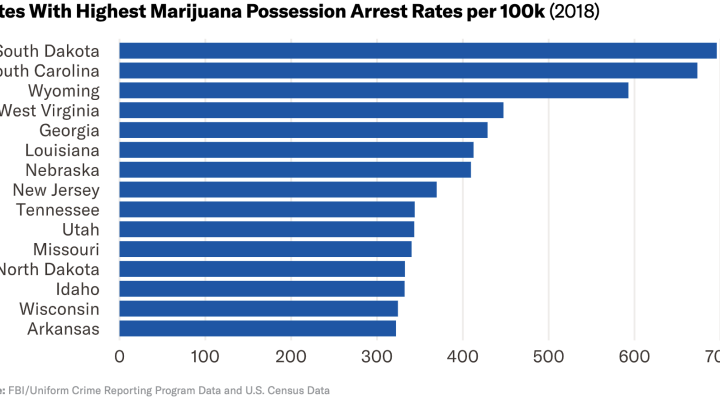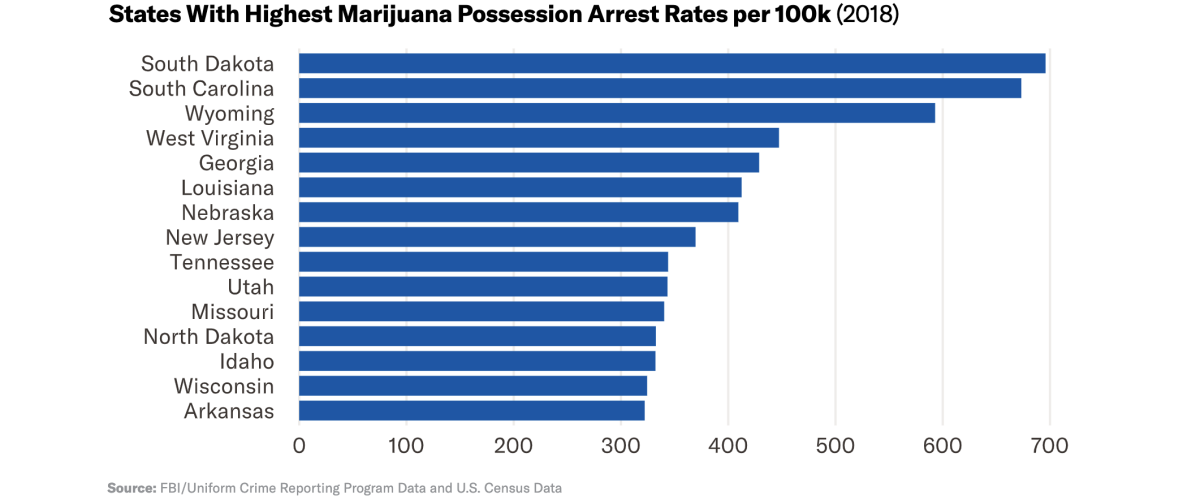The Quakers joined other proponents of criminal justice reform to welcome President Joe Biden’s recent announcement that he will grant pardons to thousands of Americans convicted on federal charges of simple marijuana possession.
While many conservative Christian denominations typically support get-tough-on-crime policies like harsh sentences for drugs, Biden’s policy change aligns with the Quakers’ ideals of justice fueled by their own theology.

Tori Bateman
“These pardons are an important step in the right direction,” said Tori Bateman, policy advocacy coordinator for the American Friends Service Committee. “As we work to abolish the criminal punishment system in the United States in favor of approaches that center healing and accountability, we must also address the policies that drive incarceration today. But our work is far from over.”
Lewis Webb, coordinator of the healing justice program at the American Friends Service Committee, agreed: “We take the position that drug addiction and illicit drugs are a public health issue that should be treated as such, instead of being left to the criminal punishment system. We believe communities can handle conflict without imposing additional harm and by reducing incarceration and reliance on policing. Closure for victims is not achieved by revenge and punishment, but through healing and restoration.”
Biden acknowledged the federal pardons are only a first step but also a vital one toward bringing more fairness into the justice system.
“As I often said during my campaign for president, no one should be in jail just for using or possessing marijuana. Sending people to prison for possessing marijuana has upended too many lives and incarcerated people for conduct that many states no longer prohibit,” he said in his Oct. 6 announcement of the pardons.
Those convicted on simple marijuana possession charges have unfairly endured barriers to employment, education and housing, he added.
 Biden also urged the nation’s governors to follow his lead with pardons for simple marijuana possession charges in their states. “Just as no one should be in a federal prison solely due to the possession of marijuana, no one should be in a local jail or state prison for that reason, either,” he said.
Biden also urged the nation’s governors to follow his lead with pardons for simple marijuana possession charges in their states. “Just as no one should be in a federal prison solely due to the possession of marijuana, no one should be in a local jail or state prison for that reason, either,” he said.
The president also ordered the U.S. attorney general and secretary of Health and Human Services to reconsider marijuana’s classification as a Schedule I narcotic under the Controlled Substances Act.
“This is the same schedule as for heroin and LSD, and even higher than the classification of fentanyl and methamphetamine — the drugs that are driving our overdose epidemic,” Biden said.
The president went on to acknowledge that combating racism was another factor in his decision to pardon those convicted of simple marijuana charges.
“And while white and Black and brown people use marijuana at similar rates, Black and brown people have been arrested, prosecuted and convicted at disproportionate rates,” he said. “Too many lives have been upended because of our failed approach to marijuana. It’s time that we right these wrongs.”

Derrick Johnson
That was a welcome admission from the leader of the nation, said NAACP President Derrick Johnson.
“We applaud President Biden for pardoning those who have been convicted for the simple possession of marijuana,” Johnson said. “Drug arrests and enforcement have caused racial disparities throughout the criminal justice system, and many drug laws were first created to target racial and ethnic minorities.”
American Civil Liberties Union studies of federal crime statistics found African Americans are four times more likely than whites to be arrested for marijuana possession and that marijuana possession accounts for nearly half of all U.S. drug arrests annually.
“While there has been some progress in scaling back the war on people who use marijuana, it is still wreaking havoc in much of the U.S.,” the ACLU said in a statement. “Despite decades of failure, prohibition and punitiveness generally remain the centerpiece of governments’ approach to drug use. As disturbingly, this report also finds that marijuana enforcement remains as racialized as ever.”

Lewis Webb
The vast majority of simple marijuana possession convictions happen on the state level, not the federal level, and there appears to be little confidence that governors will respond positively to the president’s call for state-level pardons, Webb said. “Our frustration is that the states are not following suit and instead continue to be super punitive. But we encourage them to start releasing people incarcerated for possession.”
Another concern is that Biden’s pardons do not extend to undocumented persons convicted of marijuana possession, he added. “It’s problematic when we carve out communities for different treatment. From our perspective, this is unjust.”
Related article:
What Toni Morrison taught me about my people, the Quakers | Opinion by Becky Ankeny


